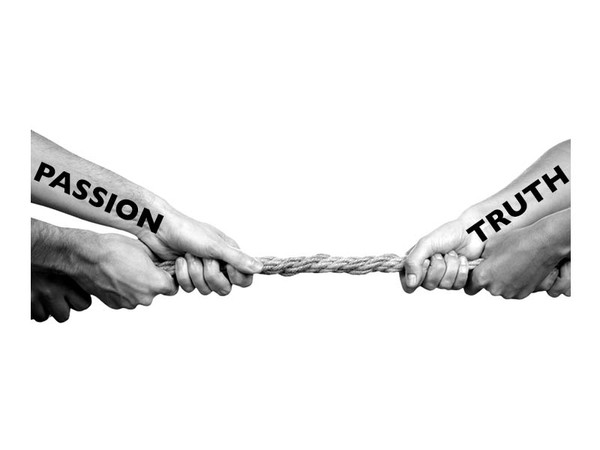Today, we find our society in a war between liberty and freedom, permeating every level of our society. How this war ends will define the course of our nation.
This war not only implicates the nation, but also the American church. If the church chooses to understand the freedom of Christ to mean we are free to live according to our unrestrained passions, free from the moral law of God, then the church will fail. If the church chooses to understand liberty as liberating us from our unrestrained passions in order to live according to the moral law, the church will not only survive, but thrive.
THE BINDING OF HUMAN NATURE
To understand this war, one must define the combatants. The first combatant is liberty. Liberty is the freedom for excellence grounded in self-restraint and virtue. Liberty seeks to liberate mankind from the tyranny of men lacking self-restraint—including our own lack of restraint. According to George Weigel, “[Liberty] is the capacity to choose wisely and to act well as a matter of habit—or…as an outgrowth of virtue. [Liberty] is the means by which, exercising both our reason and our will, we act on the natural longing for truth, for goodness, and for happiness that is built into us as human beings.” It is bound to an understanding that human nature is flawed—virtue is necessary. Virtue is both a communal and personal goal—it must be self-imposed as well as encouraged by our societal institutions.
The second combatant is freedom, or the “right” to define ourselves. Freedom believes in the malleability of human nature and the social construction of boundaries. It therefore attempts to remove all moral restraints. Proponents of freedom argue that true freedom comes when we promote our malleability in our social structures and remake ourselves in our own image. Isaiah Berlin argues, “Enough manipulation with the definition of man, and freedom can be made to mean whatever the manipulator wishes.” They argue this freedom “liberates” us to live as we want.
Liberty recognizes that humans are by nature bound to something which freedom ignores. Liberty fastens itself to virtue and the moral law. In contrast, freedom argues to be truly free means not being bound by anything—to bind yourself to anything other than your own will is to shackle yourself. The irony is that when you unbind yourself from the moral law, you enter the realm of autonomous will. This realm of autonomous will destroys an ordered society in favor of whim. The society of the whim will lead to chaos and anarchy, ultimately destroying itself. Therefore, the only way to maintain liberty is to fasten ourselves to virtue.
RESTRAINTS REQUIRED
Living free requires some form of restraint or liberty will be destroyed. Liberty recognizes this truth and calls those that live by it to restrain themselves. This change promotes a government that encourages self-restraint rather than coerced restraint. Weigel states, “Law is not a
work of [external] imposition but a work of wisdom, and good law facilitates our achievement of the human goods that we instinctively seek because of who we are and what we are meant to be as human beings.”
In contrast, freedom rejects the need for restraint. It argues any restraint is offensive and restrictive of freedom. The irony of this position is that by rejecting all restraint, they require the government to restrain the liberty of fellow citizens that disagree with them. This is strongly evidenced by the French Revolution’s Reign of Terror. It is also happening in the United States, evidenced by the decision of an Ohio judge to remove a child from parental custody over transgender issues. By rejecting self-restraint, they enslave themselves to their unrestrained passions, as well as those of other citizens. Freedom becomes a power struggle in which all become enslaved to the passions of those with the most power.
LIBERTY OF THE CHURCH
Galatians 5:13 states, “For you were called to freedom, brothers. Only do not use your freedom as an opportunity for [fleshly passions], but through love serve one another.” We are called to live in sacrificial servitude toward one another. This means that our liberty must be restrained. We can no longer pursue our own unrestrained passions, but must live according to the moral law of God in service of one another. That is true love. That is liberty.







